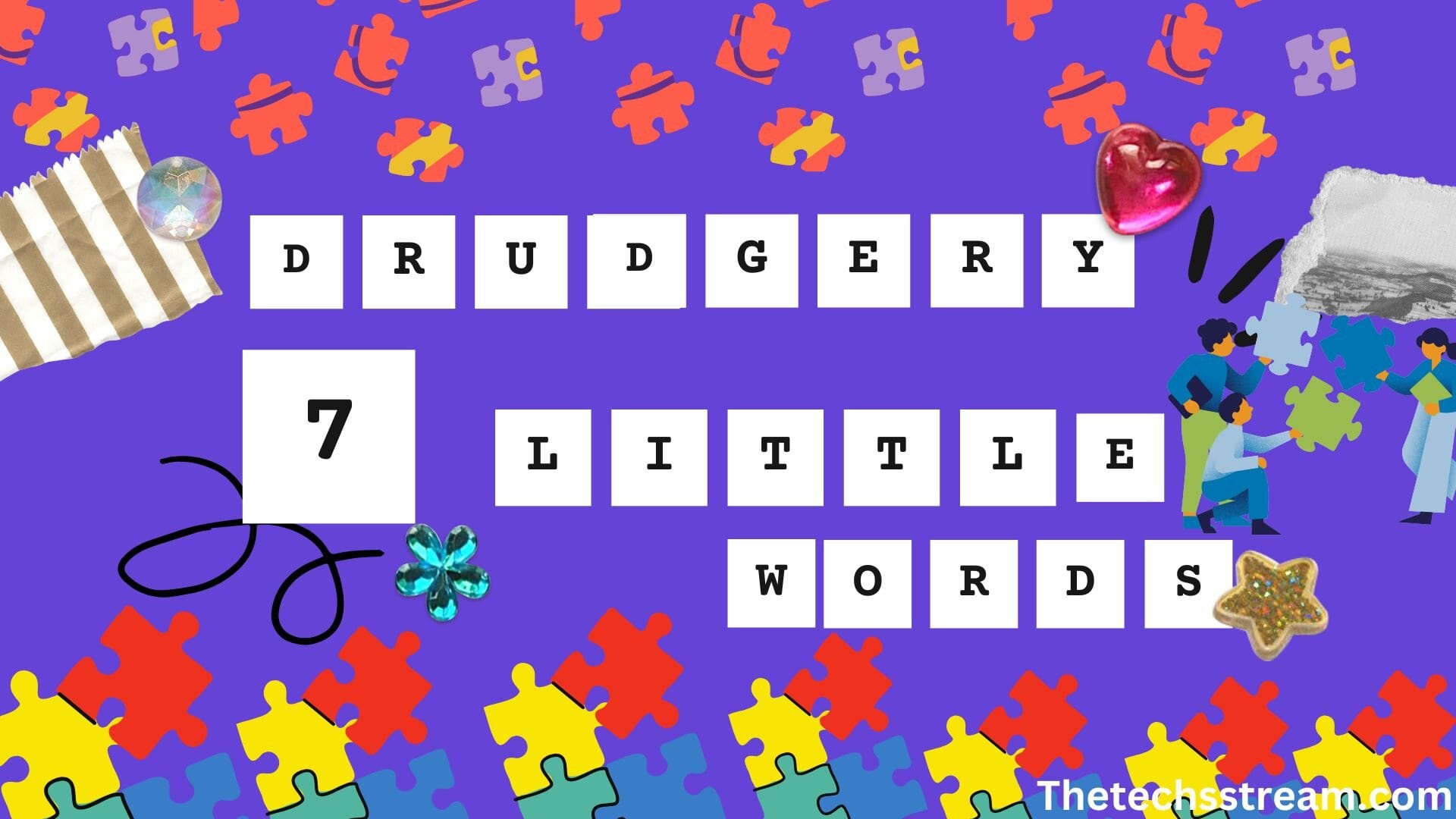
Have you ever found yourself stuck in a monotonous routine, drudgery 7 little words daydreaming about more exciting pursuits? You’re not alone. The term “drudgery” often describes these repetitive, tiresome tasks that seem to drain our energy and enthusiasm. But what if I told you there’s more to drudgery than meets the eye? In this post, we’ll delve into the meaning of drudgery, explore its hidden lessons, and uncover ways to transform those tedious chores into opportunities for growth. Let’s dive in!
Drudgery 7 Little Words: Uncovering the Hidden Lessons in Monotonous Tasks
Drudgery often feels like a weight we carry, yet it holds valuable lessons. These repetitive tasks can teach us patience and resilience. They challenge our creativity and problem-solving skills in unexpected ways.
When faced with dull routines, we have the chance to reflect on our priorities. Embracing these moments can lead to self-discovery and growth, revealing that even the most mundane activities have their purpose.
What Does Drudgery Mean?
Drudgery refers to tedious, monotonous work that feels unending. It’s the kind of task that often drains our energy and enthusiasm. Think of repetitive chores or mindless paperwork; they can wear anyone down.
This term captures the essence of labor without joy or excitement. It highlights activities that feel burdensome, leaving little room for creativity or enjoyment in the process. Embracing this understanding can help us find meaning in those tasks we dread.
Examples of Drudgery
Drudgery often manifests in everyday tasks that feel repetitive and uninspiring. For instance, cleaning the house, filing paperwork, or doing laundry can seem like endless cycles of monotony.
In workplaces, drudgery might appear as monotonous data entry or tedious meetings. These examples illustrate how mundane activities can drain our energy and enthusiasm without a clear sense of accomplishment.
Synonyms for Drudgery
Drudgery often brings to mind tedious tasks that drain our energy. Synonyms like toil, grind, and labor highlight this idea of relentless work. Each word captures a different shade of monotony.
You might also consider terms such as drudging, chore, or routine. These alternatives remind us that many tasks can feel repetitive yet still hold significance in our lives. Embracing these synonyms helps us understand the essence of drudgery better.
Why Does Drudgery Matter?
Drudgery often gets a bad rap, but it serves essential purposes. Routine tasks can build discipline and resilience. They give structure to our days and help us develop habits that fuel productivity.
Moreover, drudgery allows for reflection and mental space. While performing these mundane activities, insights may surface unexpectedly. Embracing the tedious moments can lead to unexpected growth opportunities in both personal and professional realms.
Strategies to Overcome Drudgery
To overcome drudgery, start by breaking tasks into smaller parts. This makes them feel less overwhelming and more manageable. Celebrate small wins to boost motivation.
Another approach is to change your environment. A fresh setting can ignite creativity and make repetitive tasks feel new again. Incorporate music or podcasts as well for a lively backdrop that transforms monotony into something enjoyable. Embrace these strategies to tackle the mundane effectively.
Turning Drudgery into Growth
Drudgery often feels like a weight, but it can also be a catalyst for growth. Embracing tedious tasks allows us to develop resilience and patience.
When we shift our mindset, these repetitive activities become opportunities for self-improvement. By focusing on the skills we’re honing during drudgery, we can transform monotony into valuable lessons that enrich our lives and careers.
Is Drudgery Always Inevitable?
Drudgery often feels unavoidable, especially in routine tasks that seem endless. However, it doesn’t have to be a permanent state. By changing your mindset and approach, you can find meaning in monotonous activities.
Embracing creativity or seeking new challenges can transform these tasks into opportunities for growth. It’s about perspective; even the dullest chores can become stepping stones toward personal development when approached with intention.
Final Thoughts
Drudgery might seem tedious, but it holds hidden value. Embracing the mundane can lead to unexpected insights and personal growth.
Recognizing this potential transforms how we view monotonous tasks. Instead of resisting them, consider what they might teach you about patience and resilience. There’s often wisdom in repetition that can spark creativity and innovation when least expected.
Related Posts
Dive deeper into the world of drudgery with our related posts. Explore how everyday tasks can shape your life and mindset.
Discover strategies to combat monotony and find joy in routine activities. Each article offers unique insights that may inspire you to view drudgery in a new light.
Our Contact:
We love hearing from our readers. If you have questions, feedback, or ideas to share about drudgery 7 little words, don’t hesitate to reach out. Your thoughts are important to us.
You can connect with us via email or through our social media channels. We aim to respond promptly and engage in meaningful conversations that enhance your understanding of the topic at hand. Let’s chat!
Disclaimer
The information presented in this blog is for educational purposes only. We do not claim to provide professional advice on drudgery or related topics.
Readers should use their own judgment and consult relevant professionals when necessary. Any reliance you place on the material here is strictly at your own risk.
FAQs
What is the meaning of drudgery?
Drudgery refers to tedious, monotonous tasks that require little creativity or excitement. It often feels like a burden.
How can I deal with feelings of drudgery?
Consider breaking tasks into smaller chunks, setting goals, or incorporating rewards for completing them. This can inject motivation.
Are there benefits to experiencing drudgery?
Yes! Drudgery often builds resilience and discipline. It teaches patience and can lead to personal growth if approached positively.
Can drudgery be avoided altogether?
While some monotony is inevitable in life, finding ways to spice up routines or delegate tasks can help reduce it significantly.
What are some examples of common drudgeries at work?
Tasks such as data entry, routine filing, and repetitive meetings are typical examples that many employees face regularly.

